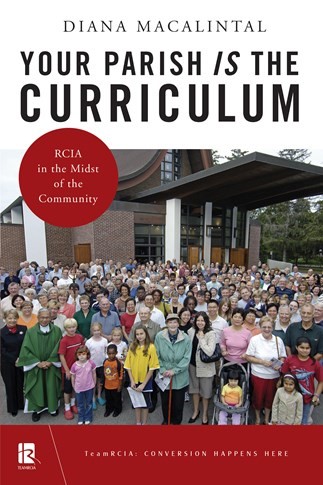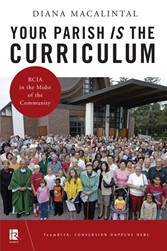
 I have long been a supporter of and passionate advocate for the proper celebration of the Rite of Christian Initiation of Adults (RCIA) in the parishes where I have been privileged to serve. I would like to hope that I have been largely successful in journeying with a range of people who have availed themselves of the RCIA process to become part of the Church that is the People of God. I would like to hope that because making disciples is fundamental to the identity of the Church as Church; if we’re not proclaiming the Gospel of Jesus to others, then we really need to re-evaluate who we think we are.
I have long been a supporter of and passionate advocate for the proper celebration of the Rite of Christian Initiation of Adults (RCIA) in the parishes where I have been privileged to serve. I would like to hope that I have been largely successful in journeying with a range of people who have availed themselves of the RCIA process to become part of the Church that is the People of God. I would like to hope that because making disciples is fundamental to the identity of the Church as Church; if we’re not proclaiming the Gospel of Jesus to others, then we really need to re-evaluate who we think we are.
And then I read Your Parish Is the Curriculum and came to realise that I had spent most of my time involved in the RCIA process over many years focussed on the wrong group of people. Instead of spending all my time on catechumens and candidates I may have been better served, and served the community of faith better, with more of my time focused on the parish community that is the privileged place where the RCIA process unfolds. I really needed to read this book many years ago; unfortunately, it was only published in 2018.
Diana Macalintal argues passionately for a recognition that the proper minsters of the RCIA process is not the parish RCIA team, or the pastors, or the parish catechists – though they certainly have important roles to play. The proper ministers of the RCIA process, a process that is intrinsic to the identity of the Church, is the entire parish itself. There doesn’t need to be a separate process that is disconnected from the parish community. Rather, following the renewal of the Second Vatican Council, the people who can assist inquirers seeking to be baptised into Christ are those who are already baptised into Christ, i.e. the parish community of the faithful. Embracing the RCIA process is the natural result of valuing our own baptism, and wishing to enable others to share that gift along with us.
If anyone was considering introducing the RCIA process into their parish community, read this book. If you would like to reinvigorate the existing RCIA process in your parish community, read this book. If you are in any way at all interested in the mission of the Church to proclaim the Gospel and make disciples, read this book.
Easily accessible and filled with practical suggestions that can be adapted to any parish setting, Macalintal communicates her own passion for the RCIA process to the reader, and encourages her reader to not be daunted by the requirements that are set out in the RCIA ritual. Macalintal encourages those who are keen to see the RCIA process in the life of their parish community to not ask people to get involved in the RCIA, but rather to consider how the RCIA can be involved in their parish.
This ‘upside-down’ approach to the way things are normally done is both liberating to those who otherwise would bear the burden of the RCIA process and challenging to an entire community of faith to recognise that it is the parish community that is the curriculum, the syllabus, and the classroom where those who are seeking can be introduced to the person of Jesus and the life of discipleship that we are all called to embrace.
My rating: 5 of 5 stars